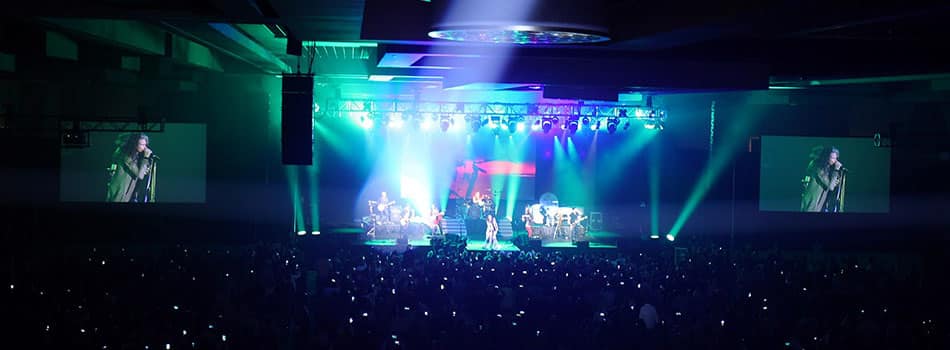The path back to full-scale live events across the globe got a big boost Monday from Pfizer. The pharmaceutical giant announced that early results from its coronavirus vaccine trial suggested that it is robustly effective in preventing the COVID-19 disease. It hopes to receive emergency authorization for the two-dose vaccine by the end of November and begin distributing worldwide.
“This is a historical moment,” Kathryin Jansen, a senior VP and head of research at Pfizer told reporters. “This was a devastating situation, a pandemic, and we have embarked on a path and a goal that nobody ever has achieved – to come up with a vaccine within a year.”
The news sent live event company stocks soaring Monday on the news. Live Nation (NYSE: LYV) opened the day at $67.40, more than $10 higher than its close of $56.06 Friday afternoon. It is the first the entertainment giant’s stock has gone higher than $60 since early March, which saw it tumble precipitously as the pandemic caused its entire industry to grind to a halt. Eventbrite (NYSE: EB) was similarly buoyed by the news, shooting up by some 30 percent Monday morning. MGM Resorts International (NYSE: MGM) is up over 16 percent as well.
The Pfizer vaccine is one of eleven in late-stage trials as part of a global effort to rapidly develop an effective vaccine against the virus which has caused more than 200,000 deaths in 2020 in the United States alone. It should be noted that the results of the testing were not published in a peer-reviewed journal, but rather by the pharmaceutical company itself in a news release.
While scientists urged caution to assume the preliminary data would prove out in full, the early returns were very promising. “This is really a spectacular number, said Yale immunologist Akiko Iwasaki. “I wasn’t expecting it to be this high. I was preparing myself for something like 55 percent.”
Even if the vaccine is as effective as early hopes suggest, it will be some time before it is rolled out to a substantial portion of the population. Should it be approved, the Pfizer vaccine will see between 15-20 million doses produced before the end of 2020, which would be a fraction of the U.S. population, even if it is distributed exclusively domestically (which is unlikely).
Such a rollout would likely continue throughout 2021, which is enough to provide hope for a much more meaningful return of live events between social distancing and venue safety enhancements and an increasingly inoculated populace as the year goes on.




